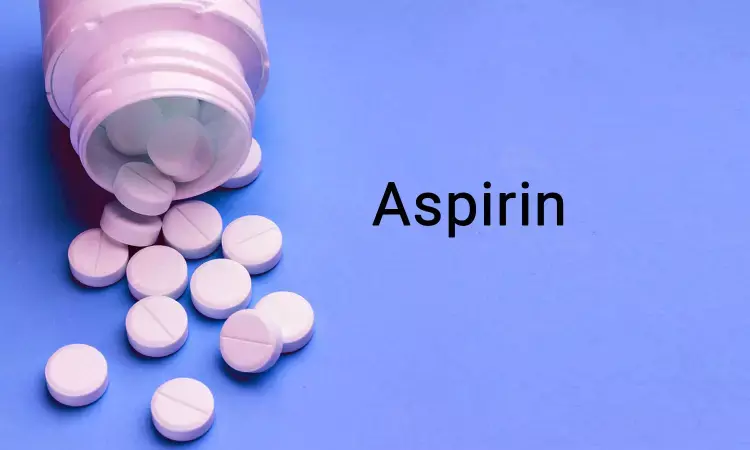- Home
- Medical news & Guidelines
- Anesthesiology
- Cardiology and CTVS
- Critical Care
- Dentistry
- Dermatology
- Diabetes and Endocrinology
- ENT
- Gastroenterology
- Medicine
- Nephrology
- Neurology
- Obstretics-Gynaecology
- Oncology
- Ophthalmology
- Orthopaedics
- Pediatrics-Neonatology
- Psychiatry
- Pulmonology
- Radiology
- Surgery
- Urology
- Laboratory Medicine
- Diet
- Nursing
- Paramedical
- Physiotherapy
- Health news
- Fact Check
- Bone Health Fact Check
- Brain Health Fact Check
- Cancer Related Fact Check
- Child Care Fact Check
- Dental and oral health fact check
- Diabetes and metabolic health fact check
- Diet and Nutrition Fact Check
- Eye and ENT Care Fact Check
- Fitness fact check
- Gut health fact check
- Heart health fact check
- Kidney health fact check
- Medical education fact check
- Men's health fact check
- Respiratory fact check
- Skin and hair care fact check
- Vaccine and Immunization fact check
- Women's health fact check
- AYUSH
- State News
- Andaman and Nicobar Islands
- Andhra Pradesh
- Arunachal Pradesh
- Assam
- Bihar
- Chandigarh
- Chattisgarh
- Dadra and Nagar Haveli
- Daman and Diu
- Delhi
- Goa
- Gujarat
- Haryana
- Himachal Pradesh
- Jammu & Kashmir
- Jharkhand
- Karnataka
- Kerala
- Ladakh
- Lakshadweep
- Madhya Pradesh
- Maharashtra
- Manipur
- Meghalaya
- Mizoram
- Nagaland
- Odisha
- Puducherry
- Punjab
- Rajasthan
- Sikkim
- Tamil Nadu
- Telangana
- Tripura
- Uttar Pradesh
- Uttrakhand
- West Bengal
- Medical Education
- Industry
No Aspirin for primary prevention of CVD in adults 60 years or older, says USPSTF

USA: People aged 60 or older who do not already have heart disease should not start taking aspirin, according to the US Preventive Services Task Force (USPSTF). With an update to its 2016 recommendation, the USPSTF has finalized its tougher stance on aspirin use for the primary prevention of cardiovascular disease.
Additionally, the recommendation statement, published in the Journal of the American Medical Association states that the decision to initiate aspirin in those between 40 and 59 should be made on a patient-to-patient basis and only if their individual 10-year risk of CVD is 10% or higher.
For updating its previous recommendations, the USPSTF commissioned a systematic review on the effectiveness of aspirin to reduce the risk of CVD events (stroke and myocardial infarction), cardiovascular mortality, and all-cause mortality in people without a history of CVD. The systematic review also investigated the effect of aspirin use on colorectal cancer (CRC) incidence and mortality in primary CVD prevention populations, as well as the harms (particularly bleeding) associated with aspirin use. Also, the USPSTF commissioned a microsimulation modeling study to assess the net balance of benefits and harms from aspirin use for primary prevention of CVD and CRC, stratified by age, sex, and CVD risk level.
"The USPSTF concludes with moderate certainty that aspirin use for the primary prevention of CVD events in adults aged 40 to 59 years who have a 10% or greater 10-year CVD risk has a small net benefit," the take force wrote in their statement. "The USPSTF concludes with moderate certainty that initiating aspirin use for the primary prevention of CVD events in adults 60 years or older has no net benefit."
Recommendations include:
- The decision to initiate low-dose aspirin use for the primary prevention of CVD in adults aged 40 to 59 years who have a 10% or greater 10-year CVD risk should be an individual one.
- Evidence indicates that the net benefit of aspirin use in this group is small. Persons who are not at increased risk for bleeding and are willing to take low-dose aspirin daily are more likely to benefit. (C recommendation)
- The USPSTF recommends against initiating low-dose aspirin use for the primary prevention of CVD in adults 60 years or older. (D recommendation)
Reference:
US Preventive Services Task Force. Aspirin Use to Prevent Cardiovascular Disease: US Preventive Services Task Force Recommendation Statement. JAMA. 2022;327(16):1577–1584. doi:10.1001/jama.2022.4983
Dr Kamal Kant Kohli-MBBS, DTCD- a chest specialist with more than 30 years of practice and a flair for writing clinical articles, Dr Kamal Kant Kohli joined Medical Dialogues as a Chief Editor of Medical News. Besides writing articles, as an editor, he proofreads and verifies all the medical content published on Medical Dialogues including those coming from journals, studies,medical conferences,guidelines etc. Email: drkohli@medicaldialogues.in. Contact no. 011-43720751


